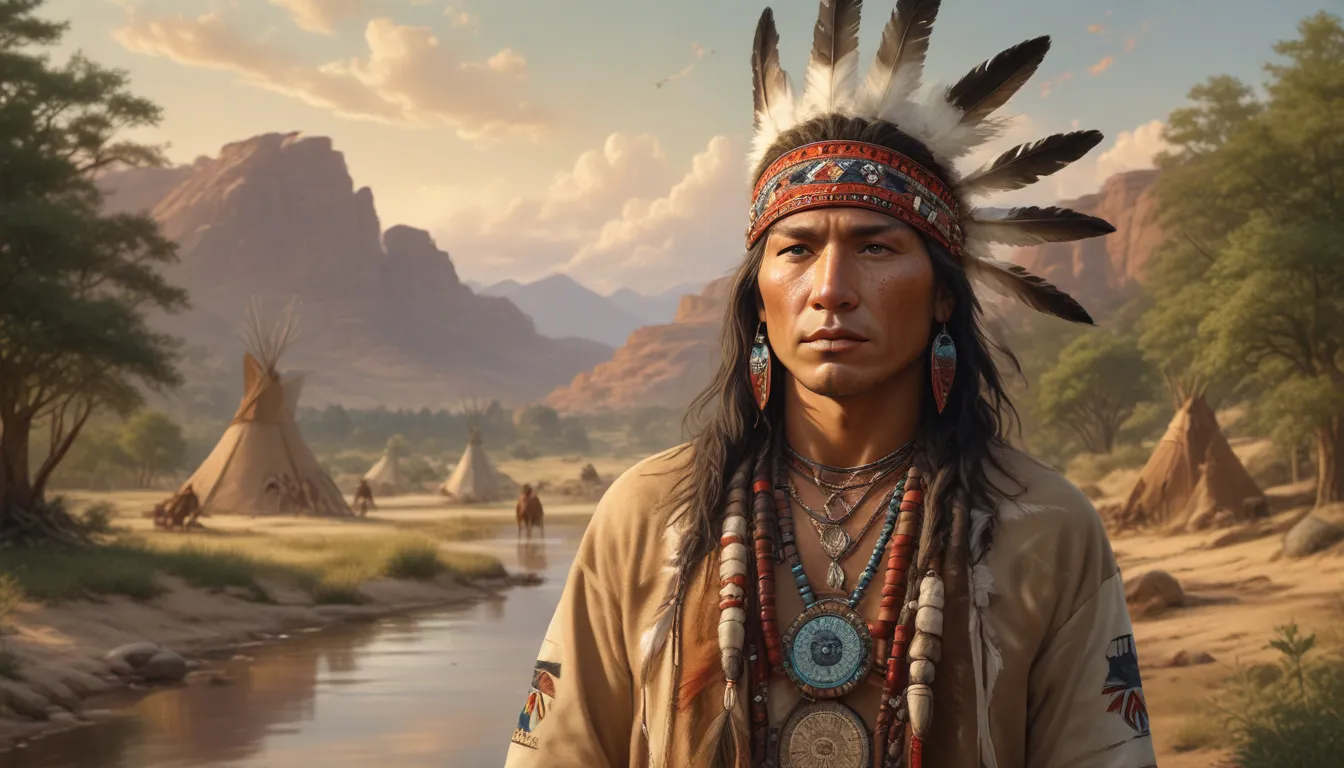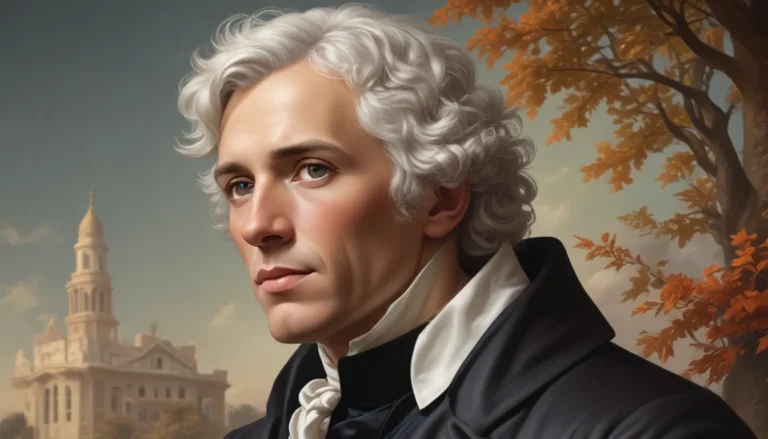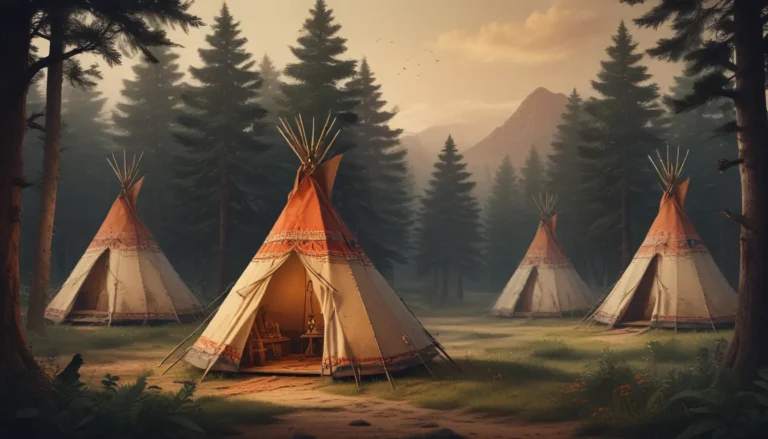The images in our articles may not match the content exactly. They are used to grab your attention, not to show the exact details in the text. The images complement the text but do not replace it.
Are you curious about the fascinating history and culture of Native American tribes? Prepare to immerse yourself in the captivating world of the Wichita tribe, a group with a heritage as vast and intriguing as the plains they once roamed. From their unique dwellings to their profound spiritual beliefs, the Wichita people hold stories that transcend time. Today, we embark on a journey to uncover 28 amazing facts that offer a glimpse into the legacy of the Wichita tribe. Get ready to have your mind enlightened by incredible tidbits about this storied tribe as we delve into their rich history together!
Unveiling the Roots of the Wichita Tribe
Long before European settlers set foot on the land now known as the United States, the Wichita tribe flourished in regions spanning modern-day Texas, Oklahoma, and Kansas. Renowned for their intricate tattoos and communal grass houses, this tribe boasts a history that dates back centuries.
- The Lineage of the Wichita People: The Wichita are descendants of the prehistoric Fourche Maline culture, known for their mound-building practices, highlighting the tribe’s deep connection to North America.
- Etymology Behind the Name: The term “Wichita” originates from the Choctaw word “Wia chitoh,” translating to “big arbor,” a nod to the expansive, dome-shaped grass lodges that served as their homes.
Embarking into Wichita Culture and Lifestyle
The Wichita tribe’s way of life was intricately intertwined with the land, exemplifying practices and rituals that reflected their profound reverence for nature.
- Mastery in Agriculture: Skilled farmers, the Wichita cultivated essential crops such as corn, beans, and squash, which formed the cornerstone of their diet and livelihood.
- Skillful Buffalo Hunters: In addition to their agricultural pursuits, the Wichita excelled as buffalo hunters, utilizing every part of the animal for sustenance, clothing, and tools.
- Significance of Tattoos: Tattoos played a vital role in Wichita culture, acting as both personal adornments and symbols of their social and spiritual beliefs.
Impact of European Contact on the Wichita Tribe
The arrival of European explorers and settlers had a profound impact on the history of the Wichita tribe, ushering in significant changes to their traditional way of life.
- Initial Encounter: The Wichita first crossed paths with Europeans in 1541 when Spanish explorer Francisco Vásquez de Coronado embarked on a quest for legendary cities of gold.
- Shifts in Interaction: Early interactions with Europeans revolved around trade but eventually escalated to conflicts and exposure to diseases, leading to a considerable decline in the Wichita population.
- Forced Relocation: During the 19th century, the U.S. government mandated the relocation of the Wichita to reservations, marking a significant departure from their customary lifestyle.
The Ever-Present Spirit of the Wichita Tribe
Despite enduring centuries of trials, the Wichita tribe has persisted, safeguarding its cultural heritage and making valuable contributions to the diverse fabric of American society.
- Official Recognition: The Wichita and Affiliated Tribes enjoy federal recognition today, with a reservation situated in Caddo County, Oklahoma.
- Cultural Preservation Initiatives: Ongoing endeavors to preserve Wichita culture involve language revitalization programs and the observance of traditional ceremonies and dances.
- Contemporary Contributions: Members of the Wichita tribe actively engage across various fields, such as education, art, and politics, enriching the multifaceted cultural landscape of the United States.
Embracing the Distinctive Aspects of Wichita Heritage
The heritage of the Wichita tribe is distinguished by unique elements that set it apart from other Native American cultures.
- Distinctive Grass Houses: The large, beehive-shaped grass houses of the Wichita reflect sophisticated architectural skills and an inherent connection to their natural surroundings.
- Matrilineal Social Structure: The Wichita structured their society matrilineally, tracing lineage and inheritance through the mother’s line, underscoring the significance of women in their culture.
- Peaceful Trade Relations: Historically, the Wichita were recognized as peaceful traders, facilitating commerce between various tribes and European settlers, showcasing their adept diplomatic skills.
- Spiritual Beliefs: Grounded in the natural world, Wichita spiritual beliefs revolved around ceremonies and rituals honoring the earth and its abundant blessings.
- Language Legacy: The Wichita language, part of the Caddoan language family, holds pivotal importance in their cultural identity, although it is considered endangered today.
- Artistic Expression: Wichita art, encompassing beadwork, pottery, and basketry, is esteemed for its exquisite beauty and craftsmanship, embodying the rich artistic heritage of the tribe.
- Culinary Traditions: Traditional Wichita cuisine, featuring corn, buffalo, and wild plants, offers a glimpse into their sustainable lifestyle and deep connection to the land.
- Educational Empowerment: Emphasizing education, the tribe integrates traditional teachings with broader educational systems, nurturing knowledge transmission.
- Sustainable Practices: The Wichita have long been stewards of the land, engaging in sustainable agriculture and hunting practices well before they gained widespread recognition.
- Resilience and Adaptability: Throughout history, the Wichita have exhibited remarkable resilience and adaptability, surmounting challenges to preserve their culture for future generations.
- Community Traditions: Annual gatherings like the Wichita Tribal Dance play a pivotal role in fostering community bonds and transmitting traditions to new generations.
- Tribute to Veterans: The Wichita honor veterans with deep reverence, highlighting their contributions through community events and acknowledgment.
- Youth Involvement: Engaging the youth in cultural preservation remains a key focus, ensuring the perpetuation of Wichita traditions and languages.
- Health Initiatives: Tailored health and wellness programs underscore the tribe’s commitment to the well-being of its members.
- Economic Development: Engaging in economic projects, the Wichita and Affiliated Tribes strive for self-sufficiency and community support.
- Advocacy for Rights: Active participation in legal advocacy reflects the tribe’s dedication to safeguarding their rights, land, and sovereignty.
- Global Outreach: Through educational outreach and cultural exchange, the Wichita tribe raises awareness of Indigenous perspectives, fostering global understanding and respect.
Embracing the Enduring Legacy of the Wichita Tribe
Exploring the diverse tapestry of the Wichita tribe unveils a world where tradition and history intertwine, crafting a vibrant cultural heritage. Known for their intricate tattoos and communal grass lodges, the Wichita have left an indelible mark on North American history. Their resilience in the face of adversity, spanning European contact to forced relocations, embodies a spirit of endurance and adaptability. Today, their legacy thrives not only in history books but in the living traditions and practices passed down through generations. Understanding the Wichita tribe transcends acknowledging their past; it involves embracing their ongoing contributions to cultural diversity and the intricate mosaic of American heritage. Their narrative stands as a testament to the strength and perseverance of Indigenous peoples worldwide.
Your Feedback Matters
Our dedication to providing trustworthy and engaging content lies at the core of our mission. Each fact shared on our platform is contributed by real users like you, offering a wealth of diverse insights and knowledge. Through meticulous review by our dedicated editors, we ensure the highest standards of accuracy and authenticity in every submission. Trust in our commitment to quality and truthfulness as you explore and discover with us.






